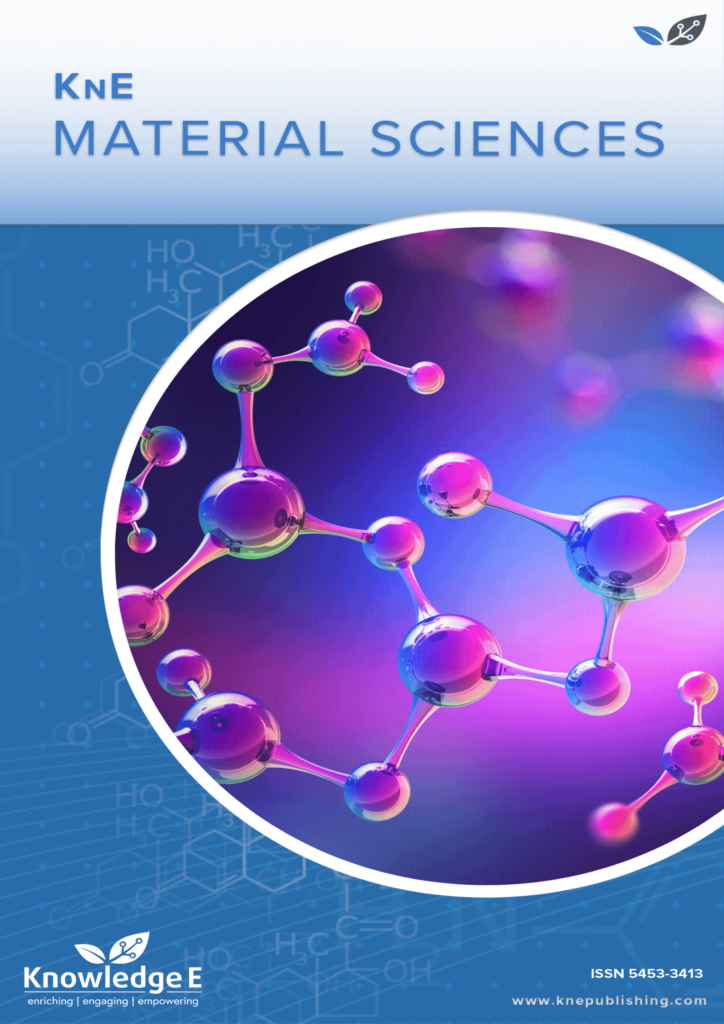
KnE Material Sciences
ISSN: 2519-1438
The latest conference proceedings on physical materials, energy materials, electrical materials.
Theoretical Bases of Electrochemical Cleaning of Oil-contaminated Soil
Published date:Dec 31 2020
Journal Title: KnE Material Sciences
Issue title: IV Congress “Fundamental Research and Applied Developing of Recycling and Utilization Processes of Technogenic Formations” Volume 2020
Pages:425–431
Authors:
Abstract:
This study developstheoretical bases for the electrochemical process of cleaning soils from oil, oil products and highly mineralized reservoir water. The article experimentally and theoretically reveals patterns of reducing the content of polluting oil products in soils of various types during the small voltage passing. The optimal amount of electricity for the effective removal of various types of pollution was required. For the implementation of a electrochemical soil cleaning process a scheme of an original installation with placement of electrodes in the soil was studied. It reduces the resistance between the electrodes. The technical and economical calculations to determine energy costs of the electrochemical installation for cleaning oil-contaminated soils included: the number of electrodes; the voltage depending on the properties of the soil; the area; the depth of contamination of the soil to be treated;azndthe parameters of the electrodes. This allowed us to determine and develop the required degree of cleaning.
Keywords: electrochemical process, charge, soil, oil products, voltage, cleaning
References:
[1] State report of Ministry of Natural Resources and Environment of the Russian Federation (2018). “About the State and Environmental Protection of the Russian Federation in 2017”.
[2] Ferrarese, E. and Andreottola, G. (2010, January). Application of Electrochemical Techniques for the Remediation of Soils Contaminated with Organic Pollutants. Presented at Annual International Conference on Soils, Sediments, Water and Energy. Amherst, USA: University of Massachusetts.
[3] Zhelovitskaya, A. V., Ermolaeva, E. A. and Dresvyannikov, A. F. (2008).Oxidation of Organic Compounds using a Hydroxide Radical Generated in Solutions by Chemical and Electrochemical Methods. Bulletin of KTU, pp. 211-229.
[4] Streche, C., et al.(2018). Decontamination of Petroleum Contaminated Soils Using the Electrochemical Technique: Remediation Degree and Energy Consumption. Scientific Report., vol.8, pp. 1-14. Retrieved from https://www.nature.com/articles/.
[5] Pryanichnikova, V.V., et al. (2018). Features of Electrochemical Cleaning of Various Types of Soils from Petroleum Products. Butlerov Communications, vol. 53, issue3, pp. 124-129.
[6] Pryanichnikova, V.V., et al. (2017). The Electrochemical Method of Oil-Contaminated Soil Remediation. Key Engineering Materials, vol. 743, pp. 314-318.
[7] Pryanichnikova, V.V., et al. (2018). Calculation of Electrical Parameters During Electrochemical Cleaning of Oil Contaminated Soils. The Fundamental Research, issue 12, pp. 208-212.